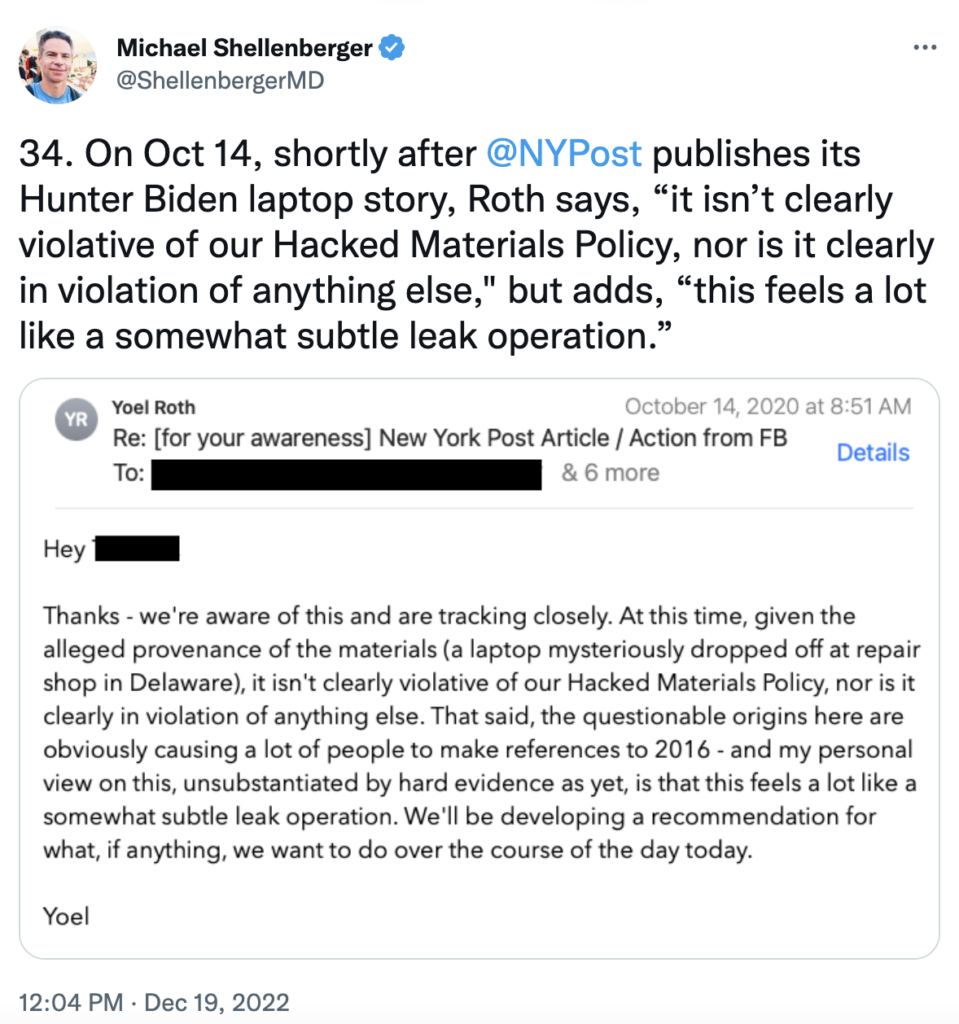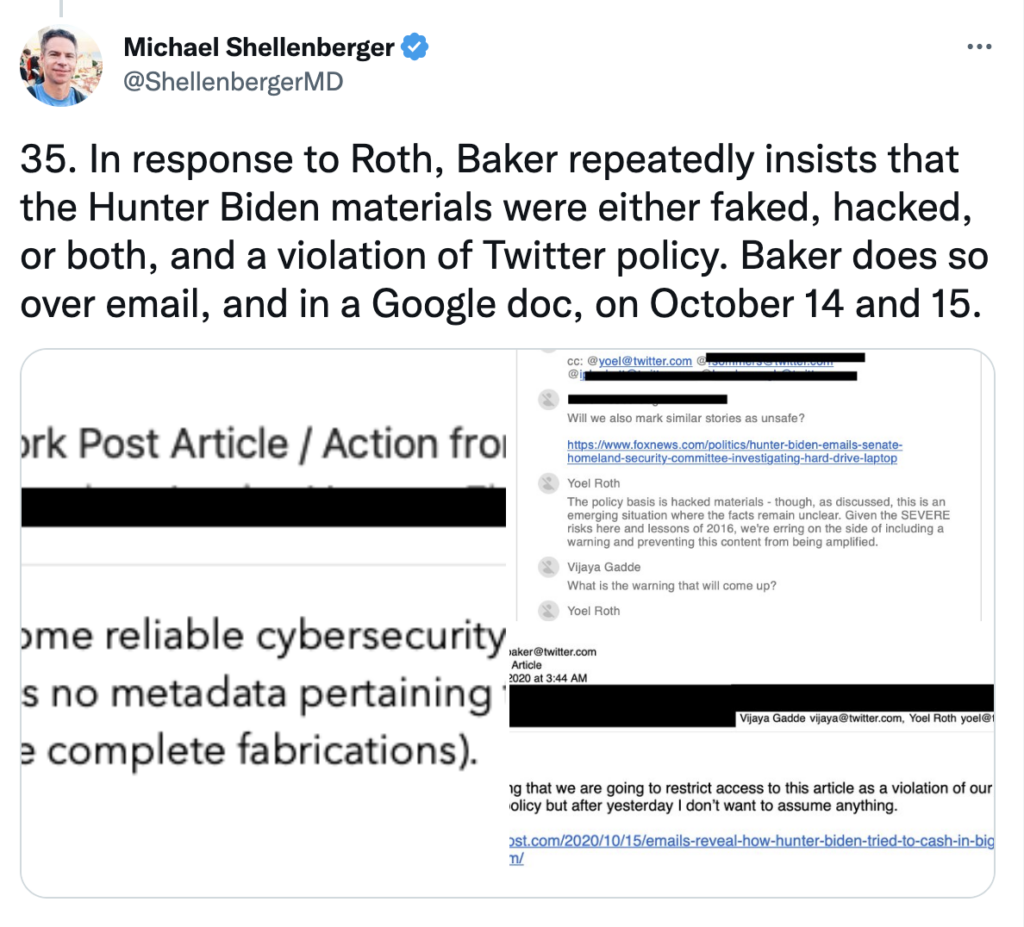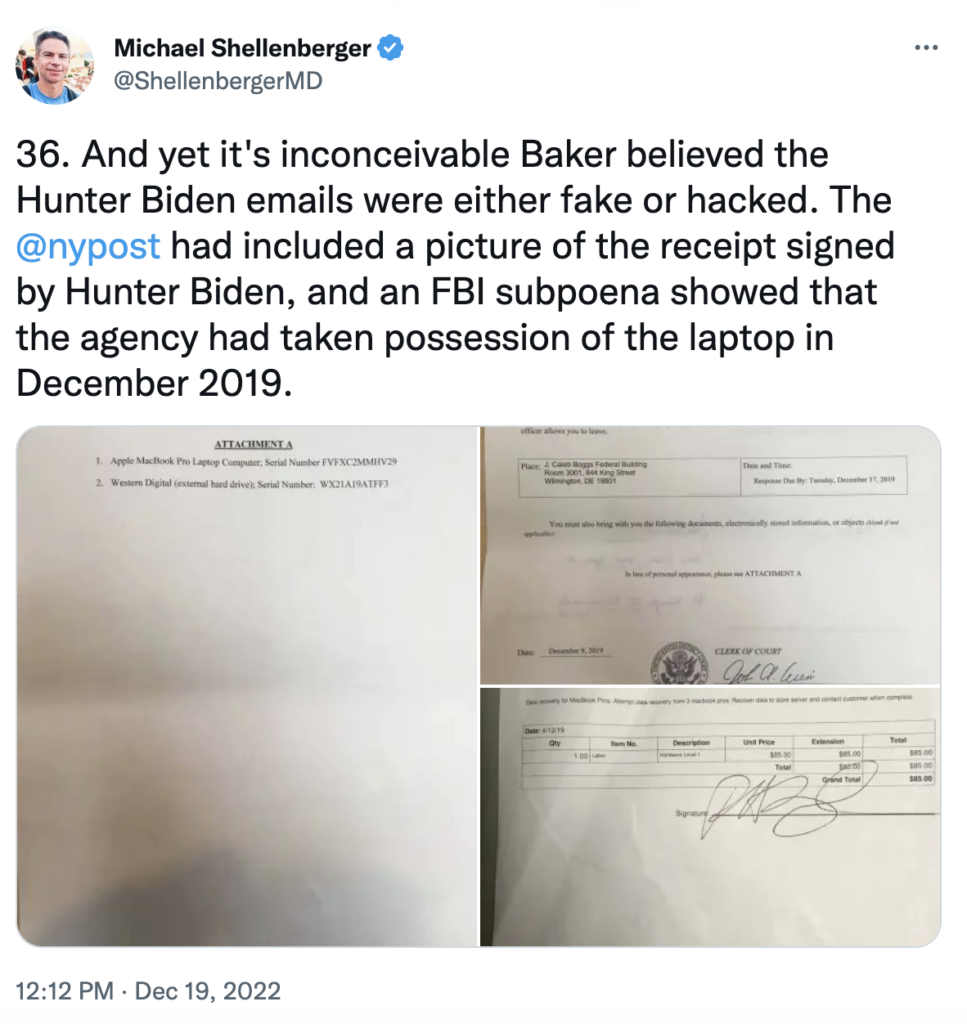The FBI, with the help of insiders at Twitter, led a domestic intelligence coup against Americans during the 2020 election by priming the lead censors at Twitter to discredit reports of the legitimate Hunter Biden laptop under the guise of hacked materials.
The use of an intelligence reimbursement program means the taxpayer-funded FBI was paying Twitter nearly $3.5 million while the Big Tech company was aiding its election-rigging operation, writer Michael Shellenberger confirmed on Monday in the seventh installment of the “Twitter Files.”
By the time the New York Post reported on the Biden family business — a revelation that had the potential to change Americans’ votes in the 2020 election — the FBI knew the laptop and accounts of Hunter’s sketchy overseas dealings were legitimate.
A previous batch of “Twitter Files” indicated that the Big Tech platform used a manufactured “hacked materials” policy to suppress the New York Post’s reporting about Hunter’s laptop for political reasons mere weeks before the 2020 presidential election.
The driving force for that censorship, Shellenberger revealed in his new thread, was James Baker, Twitter’s deputy general counsel who served as lead counsel for the FBI from 2014 to 2018.
Baker, who played a key role in the FBI’s attempt to undermine former President Donald Trump via the Russian collusion hoax, was recently fired by Twitter CEO Elon Musk after his “unconvincing” explanation about his part in the suppression of the Hunter Biden laptop story.
The FBI and Baker, documents suggest, worked to discredit reporting about the Biden family business both before and after it went public.
One month before the New York Post published its story, the FBI requested to have a classified briefing with someone at Twitter who had a top security clearance. Baker, out of the many former FBI officials who had infested Twitter over the years, got the meeting.
One month later, Baker was documented discouraging Yoel Roth, former safety head at Twitter, from allowing the Post’s reporting to circulate on Twitter.
Roth noted that the Post’s reporting “isn’t clearly violative of our Hacked Materials Policy, nor is it clearly in violation of anything else” but admitted, after months of grooming by the FBI about hacks, that “this feels a lot like a somewhat subtle leak operation.”

Even though Baker’s former employer was aware of the veracity of Hunter’s laptop, Baker insisted on the possibility that the contents were obtained in unsavory ways that violated Twitter’s policies. The FBI veteran sourced some of his skepticism from what he said were “reliable cybersecurity folks.”


In the years leading up to the 2020 election, Twitter reported there was “very little Russian activity” on its platform. The FBI also admitted it “did not see any similar competing intrusions to what had happened in 2016.”
Yet, the corrupt agency spent months pressuring and priming Twitter with secret meetings, which focused on encouraging censorship ahead of the 2020 election, and encrypted conversations about the potential for Russian hack-and-leak operations.
By 10 a.m. on Oct. 14, the same day the Post’s story was published, Twitter executives had bought and were selling the idea that the laptop came not from a whistleblower but from a “hack-and-leak” operation. The executives used corporate media reporting speculating about Republicans’ ties to Russia to raise the possibility that this “hack” was led by foreign maligners.
“In the end, the FBI’s influence campaign aimed at executives at news media, Twitter, & other social media companies worked: they censored & discredited the Hunter Biden laptop story,” Shellenberger wrote.
For its successful influence operation, the FBI was warmly thanked by Baker and Twitter.

